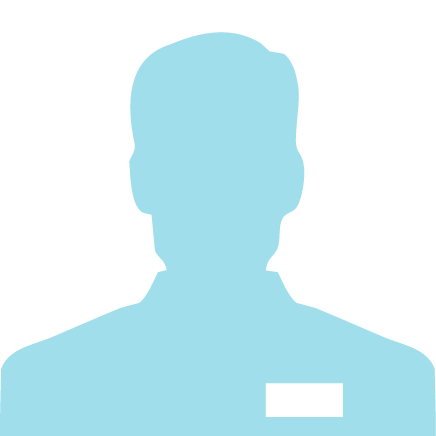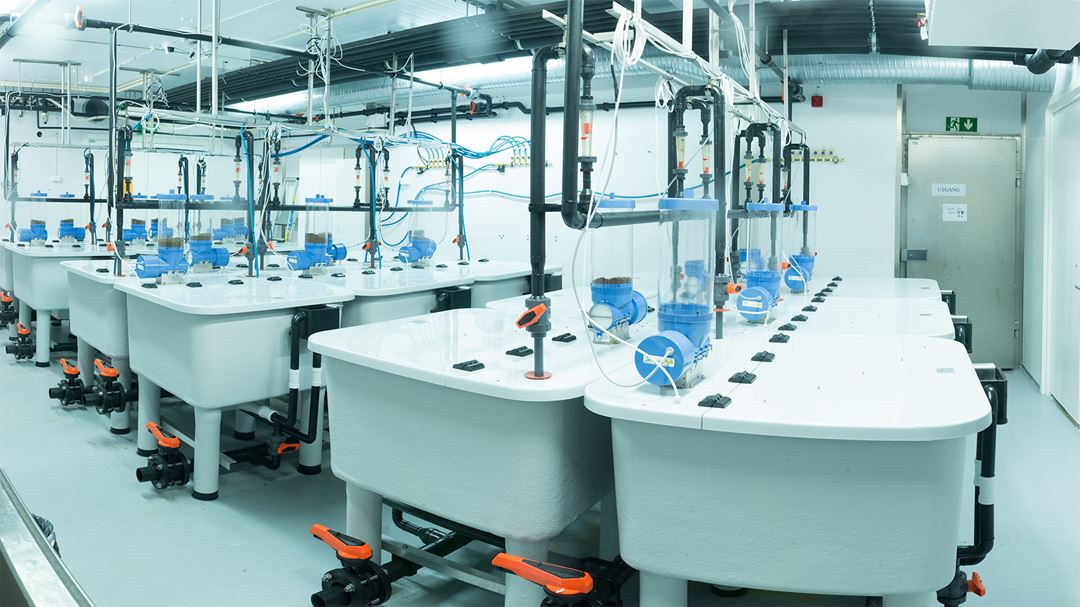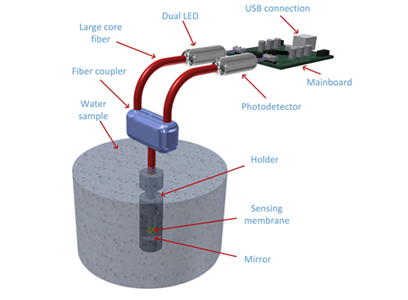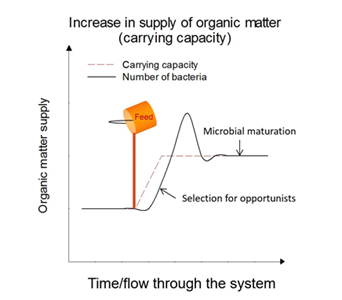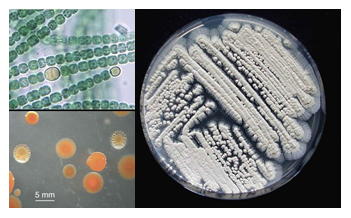Vi undersøker hvordan vannhydraulikk i sirkulære og rektangulære kar i påvirker innhold av organisk materiale, bakteriesamfunn og kvalitet på produktet. Det arbeides også med å utvikle en ny type sensor for karbondioksyd i produksjonsvann i RAS anlegg.
Prosjektet er finansiert av COFASP, ERANET og er et forskningssamarbeid mellom SINTEF OCEAN AS, Universitetet i København og CIIMAR, Portugal. I tillegg deltar NTNU med masterstudenter og en PhD student. Forsøkene i RAS er kjørt i nytt forsøksanlegg på NTNU Sealab.
WordPackages:
WP1 : Tank Hydraulics
WP2 : Removal of Organic matter in RAS
WP3 : Effects on microbial communities
WP4 : Effect on Off-flavour
WP5 : Effects on Dissolved Carbon Dioxide
Objectives:
- To characterize the consequence of different levels of organic matter removal (high, low) in LBCC-RAS on: (1) conventional water quality parameters, (2) heterotrophic microbial carrying capacity, bacterial stability and nitrification efficiency, (3) the biological processes that cause off-flavour production, and (4) dissolved CO2.
- To demonstrate the water flow pattern in circular and plug-flow rearing in LBCC-RAS to obtain improved self-cleaning and high water quality conditions for fish.
- To develop an overall tank design for water flow in fish tanks/raceways in LBCC-RAS that facilitates early removal of particles.
- To demonstrate the usefulness of a dissolved CO2 sensing platform for approximation of RAS organic load.
Accomplishments:
- Workshop with all partners (R&D and Industry) in Velje Denmark
- Workshop with all partners involved in experiment in the mini RAS system at NTNU Trondheim
- Established the experimental RAS set up at NTNU, Sealab in Trondheim Norway
- Developed a new treatment setup for removal of organic matter in the experimental setup
- Done first experiment testing how turbulence from fishes influences the movement of particles in a circular tank system.
- Started the development and initial test of the new CO2 sensor
- Different taxonomic groups of off-flavour producing microorganisms were identified in biofilter of a recirculated system in Denmark
Expected impact of project for policy/industry/other stakeholder and future perspectives:
The project will pave the way for further innovation of Landbased Closed Containment (LBCC)-RAS systems. The deliverables provides necessary knowledge important for successful development of both inland aquaculture and smolt / post-smolt farms. By helping decreasing waste effluents and bio-deposit impacts, and these measures will allow for an increased and improved aquaculture production, even in environmental sensitive areas. The project aim to improve strategies and technology for optimum control of the production environment, but will also help in safeguarding fish quality and animal welfare. We believe that the project will:
- Provide ideas for simpler, lower capital expenditure, more compact, efficient and well performing RAS systems
- Develop new and integrated knowledge on production and mitigation on off-flavour compounds in RAS
- Deliver new directions for optimum control of the water body inside the a fish tank. The results are particular important for Portugal, since the country wants to develop inland aquaculture, and LBCC- RAS is signalised as the preferred technology by the authorities.
Results from the project are also expected to be of major importance for improving the water quality in LBCC-RAS in Denmark and Norway, where a significant production fish already occurs. Denmark has their "model dambrug" and nitrogen quotas, whilst Norway have opened up for further expansion of salmon production to harvest size LBCC-RAS systems. The challenges they will meet in water and product quality will be addressed in this project and strategies and water treatment solutions will be published so they are available as scientific background for the industry and authorities.
